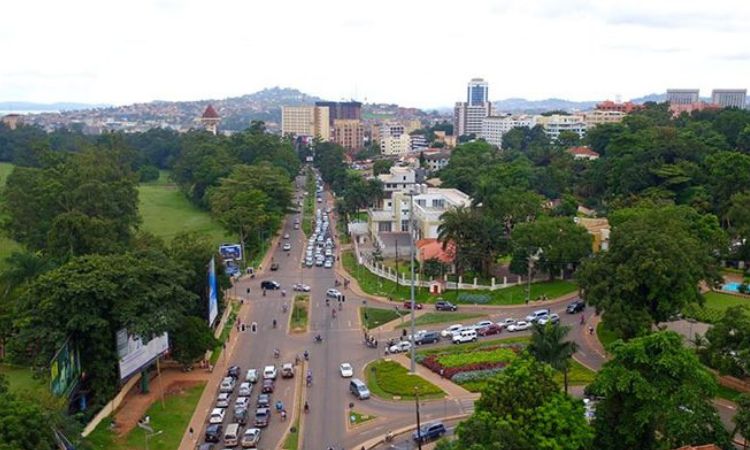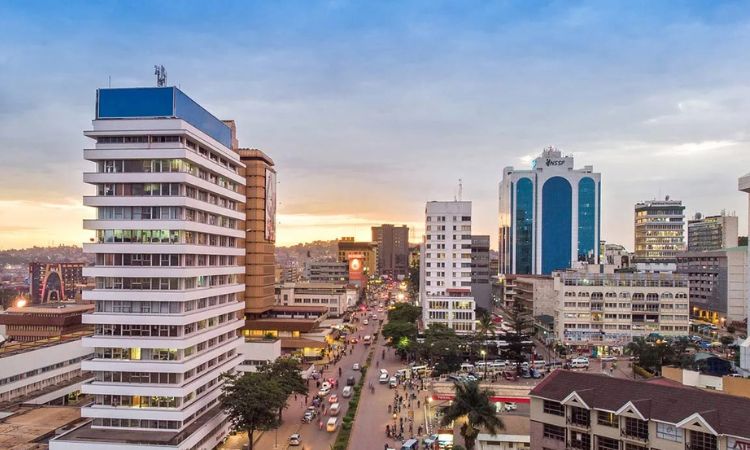Kampala City Guide: History, Attractions, Things to Do
Kampala, Uganda’s vibrant capital city, is a bustling metropolis that blends rich history, diverse culture, and modern urban energy. Often called the “Pearl of Africa’s urban heart,” Kampala city pulses with life on its iconic seven hills, offering everything from ancient royal tombs to throbbing nightlife.
Whether you’re searching for things to do in Kampala, planning where to stay in Kampala, or curious about the cost of living in Kampala, this comprehensive guide covers it all.
As the capital city of Uganda, Kampala is a gateway to East Africa’s adventures, located just a short drive from Entebbe International Airport and the shores of Lake Victoria. Dive into this ultimate Kampala Uganda resource to discover why millions visit or call this dynamic city home.
Brief History of Kampala
The history of Kampala is deeply rooted in the powerful Buganda Kingdom, which shaped the region long before European arrival. The origin of Kampala traces back to the late 19th century when the area was known as “Kasozi ka Impala” – meaning “Hill of Impalas” in Luganda.
The Kabaka (king) of Buganda used these grounds for hunting the graceful antelopes that roamed freely, and British explorer Henry Morton Stanley noted the impalas during his 1875 visit.
Under the Buganda Kingdom, Kampala developed as a strategic center. The kingdom’s capital was initially at nearby hills, but Mengo Hill became prominent. Colonial influence arrived in 1890 when British captain Frederick Lugard established a fort on Old Kampala Hill, marking the start of European control. The city grew rapidly during the protectorate era, with infrastructure like roads and missions.
After Uganda’s independence in 1962, Kampala exploded in population and importance. From a modest town of about 50,000 in the 1950s, it ballooned to over 1.5 million today in the greater metropolitan area.
Post-independence challenges, including political upheavals in the 1970s and 1980s, tested the city, but resilient growth under the Buganda Kingdom Kampala restoration efforts has made it a symbol of Ugandan revival. Today, the history of Kampala reflects a fusion of tradition and modernity.
Kampala Uganda Location & Geography
Kampala location places it in central Uganda, approximately 0°19′N 32°35′E on most maps – check any Kampala, Uganda map for precise visuals. The city sprawls across seven major hills: Nakasero, Mengo, Rubaga, Namirembe, Makerere, Kololo, and Old Kampala, with additional ones like Kibuli and Nsambya adding to its undulating landscape. This hilly Kampala geography creates stunning vistas and microclimates.
Proximity to Lake Victoria, just 40 km south, influences everything from humidity to recreation. The tropical climate features warm temperatures year-round, averaging 22–28°C (72–82°F), with two rainy seasons (March–May and September–November). Kampala Uganda time operates on East Africa Time (EAT), UTC+3, with no daylight saving changes.
Yes, Kampala Uganda is in Africa, specifically East Africa, serving as a landlocked nation’s economic hub. The geography supports lush greenery, wetlands, and urban parks, making it a green oasis amid rapid development.
Kampala Uganda Map
Top Attractions in Kampala
Searching for Kampala tourist attractions? Start with these must-visits that showcase the city’s heritage and beauty.
The Kasubi Tombs, a UNESCO World Heritage Site on Kasubi Hill, house the burial grounds of four Buganda kings. This thatched masterpiece of Ganda architecture draws history buffs.
The Uganda Museum in Kitante offers artifacts from prehistoric times to modern Uganda, including musical instruments and ethnographic displays.
For serenity, the Bahai Temple on Kikaya Hill is the only one of its kind in Africa, with manicured gardens open to all faiths.
Kabaka’s Palace at Mengo, built in 1922, reflects royal legacy (tours available, though the current Kabaka resides elsewhere).
The Gaddafi National Mosque on Old Kampala Hill accommodates 35,000 worshippers; climb the minaret for panoramic views. Kampala Uganda Muslim communities thrive here, with Islam one of the major religions alongside Christianity and indigenous beliefs.
Namugongo Martyrs Shrine commemorates 22 Catholic and 23 Anglican martyrs executed in 1886; it’s a pilgrimage site with annual June 3 celebrations.
End with the Ndere Cultural Centre in Ntinda for traditional dances, music, and dinners – perfect for immersing in culture in Kampala.
These things to do in Kampala blend education, spirituality, and entertainment.
Kampala Neighborhoods / Suburbs
Kampala neighborhoods offer diverse vibes for living or staying.
Kololo: Upscale hill with embassies, luxury homes, and views – ideal for diplomats.
Nakasero: The business heart, home to markets, offices, and the State House.
Kampala Road: CBD chaos with shops, banks, and street vendors.
Kabalagala: Nightlife epicenter with bars and expat hangouts.
Residential gems include Ntinda (family-friendly, malls), Bukoto (trendy cafes), and Naguru (modern apartments).
For where to stay in Kampala, match neighborhoods to your style – upscale in Kololo or vibrant in Kabalagala.

Kampala Hotels & Accommodation
Hotels in Kampala cater to all budgets.
5-star options: Kampala Serena Hotel (elegant, central), Sheraton Kampala (iconic views), Mestil Hotel & Residences (modern luxury), and the upcoming Pearl of Africa Hotel (skyscraper splendor).
Mid-range: Fairway Hotel, Protea Hotel Entebbe by Marriott.
Budget: Hostels like Bushpig Backpackers or Red Chilli Hideaway.
Airbnb thrives for apartments in Ntinda or Kololo. Where to sleep in Kampala? Book early during peak seasons.
Culture & Lifestyle
Kampala lifestyle is electric – dubbed East Africa’s party capital. Music scenes boom with Afrobeat, dancehall, and local artists like Bobi Wine. Dance troupes perform at Ndere Centre.
The food scene shines: Try Rolex (chapati-egg roll), Luwombo (steamed banana leaf parcels), or matooke. Street food abounds.
Kampala Uganda religion is diverse: Christianity (majority), Islam (notable in areas like the Gaddafi Mosque), and traditional beliefs. Friendly locals embody “Ubuntu” hospitality.
Nightlife in Kampala
Nightlife in Kampala rivals Nairobi’s. Clubs in Kampala include Club Guvnor (VIP vibes), Vault (underground), and Nomad (rooftop).
Live music at venues like Cayenne or Design Hub. Bars in Kabalagala pulse till dawn; late-night eats at Rolex stands.
Shopping in Kampala
Shopping in Kampala mixes modern and traditional. Kampala malls: Acacia Mall (upscale brands), Arena Mall, Lugogo Mall (Garden City).
Craft markets for souvenirs; Owino Market for bargains (clothes, spices); Old Taxi Park for chaos and deals.
Transportation & Getting Around
How to get around Kampala? Boda bodas (motorcycle taxis) are quickest but negotiate fares.
Uber and Bolt apps work reliably. Special hire taxis, matatus (minibuses), and buses for longer trips.
Car hire from agencies like Europcar. Airport transfers: Entebbe to Kampala is 45 km, about 1 hour via expressway – use shuttles or taxis.
Transport in Kampala is affordable but traffic-heavy.
Safety & Security Tips
Is Kampala safe? Generally yes, but vigilance pays. Is Kampala Uganda safe for tourists? Absolutely with precautions.
Stay aware in crowded areas like Owino. Use trusted transport (Bolt over random bodas). Avoid walking late at night in isolated spots. Keep belongings secure; petty theft is common.
Emergency: Police 999. Health: Yellow fever vaccine recommended. Overall, safety in Kampala improves yearly.
Cost of Living in Kampala
Cost of living Kampala is low compared to Western cities. Kampala prices:
- Street food: 5,000–10,000 UGX ($1.30–$2.70).
- Restaurant meal: 20,000–50,000 UGX.
- Rent (1-bed city center): 1,000,000–2,500,000 UGX/month ($270–$675).
- Transport: Boda ride 2,000–5,000 UGX; Bolt 10,000–20,000 UGX.
Daily traveler budget: $30–$80. Kampala Uganda currency is Ugandan Shilling (UGX); ATMs widespread, cards accepted in hotels.
Fun Activities to Do in Kampala
Beyond attractions, activities in Kampala include boat cruises on Lake Victoria (sunsets from Speke Resort), cultural shows at Ndere, hiking Kampala hills (Kololo trails), local food tours in markets, or quad biking in suburbs.
Things to do Kampala: Gorilla trekking day trips or white-water rafting in Jinja (1.5 hours away).
Best Time to Visit Kampala
Best time to visit Kampala: Dry seasons June–August (cooler) and December–February (festive). Avoid heavy rains March–May.
Festivals: Martyrs Day (June), Independence Day (October).
Frequently Asked Questions about Kampala
Is Kampala expensive? No, it’s budget-friendly; daily costs under $50 for travelers.
How far is Kampala from the airport? Entebbe International Airport is 40–45 km, about 45–90 minutes by car.
What language is spoken in Kampala? English (official), Luganda (widely), Swahili.
What is Kampala known for? Seven hills, Buganda heritage, vibrant nightlife, and as Uganda’s economic hub.
Kampala Uganda time? EAT (UTC+3).
What is Kampala Uganda currency? Ugandan Shilling (UGX).
Is Kampala Uganda in Africa? Yes, central East Africa.
What is Kampala Uganda religion? Predominantly Christian, with Islam, traditional, and others.
Is Kampala Uganda safe for tourists? Yes, with standard precautions; millions visit annually.
Conclusion
Kampala, Uganda’s captivating capital, weaves history, culture, and adventure into an unforgettable tapestry. From the impala-inspired origins and Buganda Kingdom legacy to pulsating nightlife in Kampala and serene Lake Victoria cruises, this city on seven hills satisfies every traveler.
Whether exploring Kampala tourist attractions like Kasubi Tombs, savoring street Rolex, or navigating safe, affordable transport, Kampala Uganda promises authenticity and warmth.
Explore Kampala with our Kampala guided tours – let local experts unlock hidden gems, royal stories, and off-the-beaten-path experiences you won’t find in any guidebook. Book your spot today and discover the real heartbeat of the Pearl of Africa!
